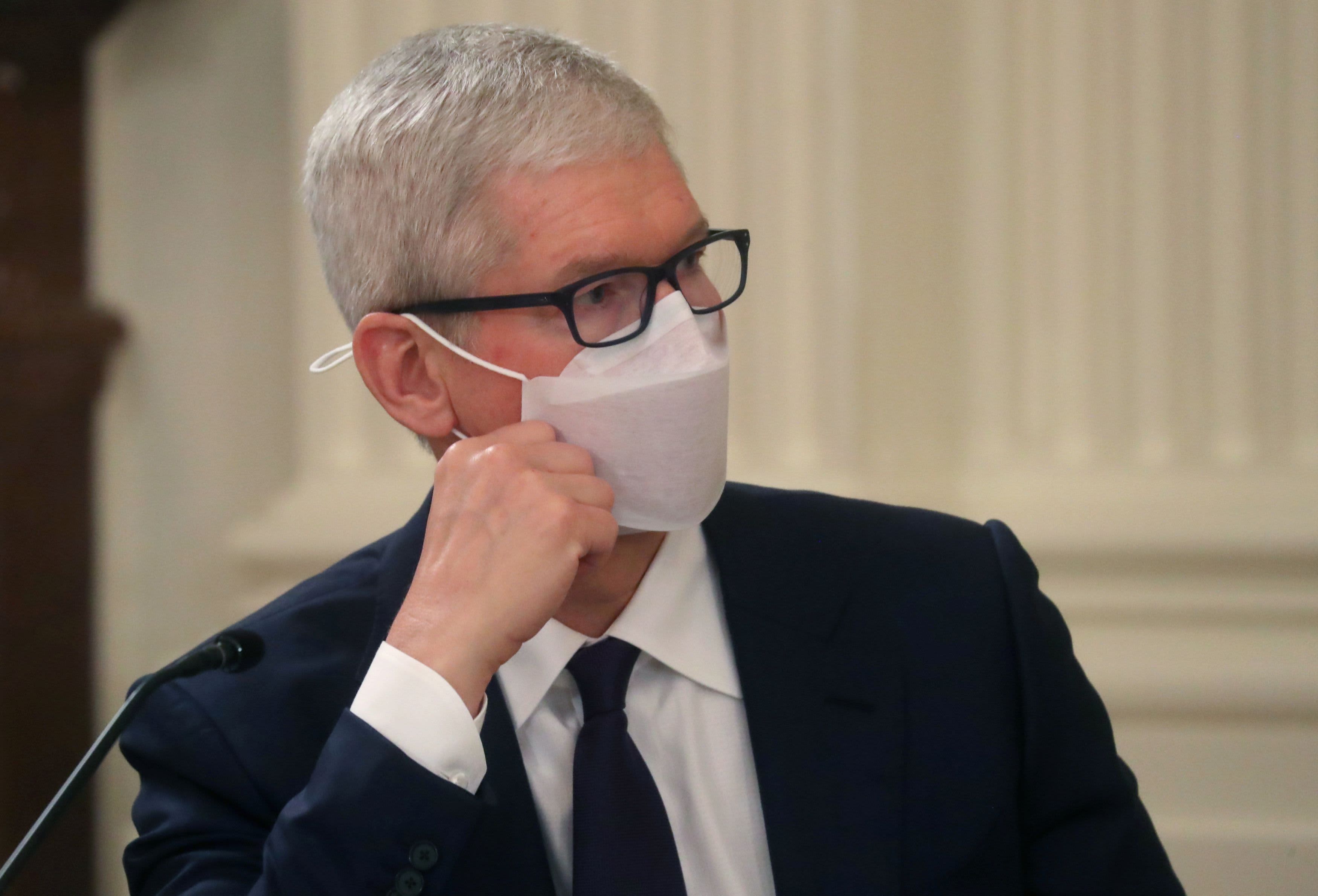Epic Games failed to prove Apple is a monopolist, rules judge

Apple Inc Chief Executive Officer Tim Cook listens as U.S. President Joe Biden delivers remarks during a meeting with members of his national security team and private sector leaders to discuss how to “improve the nation’s cybersecurity,” in the East Room at the White House in Washington, August 25, 2021.
Leah Millis | Reuters
A federal judge in California ruled Friday that Epic Games failed to prove that Apple is a monopolist.
But she left open the possibility that Apple’s alleged monopoly status could be proven.
“While the Court finds that Apple enjoys considerable market share of over 55% and extraordinarily high profit margins, these factors alone do not show antitrust conduct. Success is not illegal,” U.S. District Judge Yvonne Gonzalez Rogers wrote.
“The final trial record did not include evidence of other critical factors, such as barriers to entry and conduct decreasing output or decreasing innovation in the relevant market,” she wrote. “The Court does not find that it is impossible; only that Epic Games failed in its burden to demonstrate Apple is an illegal monopolist.”
That’s an important development for other parties that may be considering legal action against Apple on antitrust grounds. Politico reported earlier this week that the Department of Justice was waiting on the Epic Games decision to decide how to move forward in its own investigation into Apple.
On the one hand, the ruling could be discouraging to DOJ prosecutors, state attorneys general or private parties who may be considering legal action. But on the other, it invites the chance for more evidence to sway a court’s opinion on Apple’s alleged monopoly power.
The judge did hand Epic a partial win, ruling that Apple engaged in anticompetitive conduct by failing to allow developers to notify their customers directly of their own payment mechanisms to use instead of Apple’s. She ordered Apple to allow developers to include external links to their own tools in addition to Apple’s in-app purchasing mechanism.
That remedy could alleviate some of the most pressing concerns developers have raised with Apple’s model. As app makers have become more outspoken over the past couple of years about Apple’s practices, the company has slowly adjusted its policies, which could eventually make further legal action against the company less attractive to regulators and competitors relying on their services.
WATCH: Apple’s fight with Epic Games is part of a larger antitrust battle